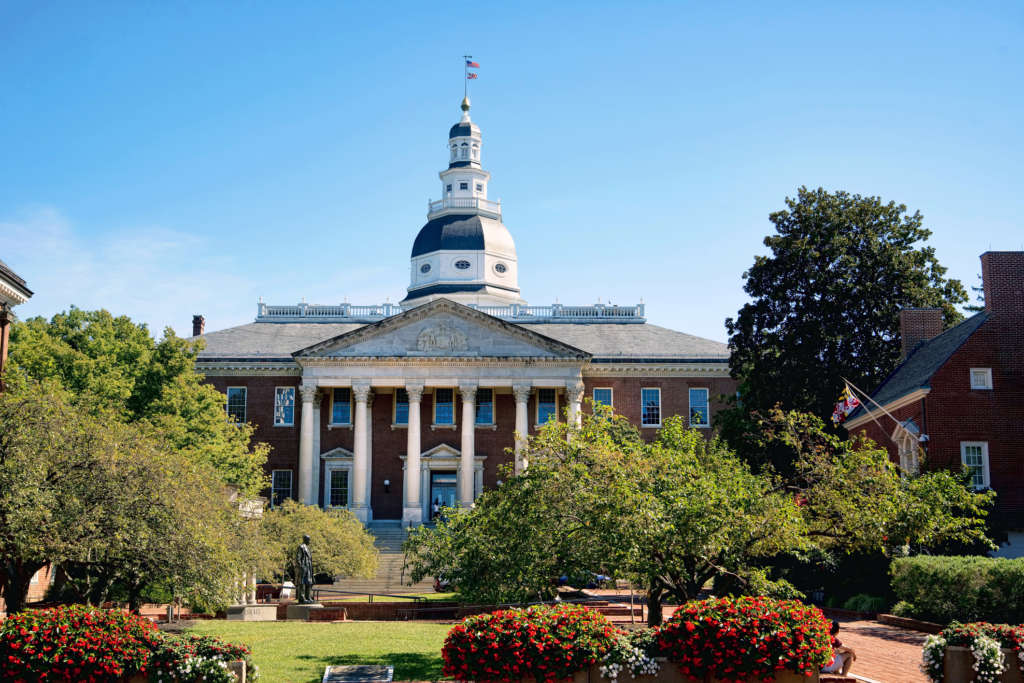
ANNAPOLIS, Md. — A bill that aims to ensure young, undocumented Maryland students referred to as “Dreamers,” can pursue higher education by giving qualified individuals access to in-state tuition is advancing in the General Assembly.
The circumstances under which Dreamers and residents with temporary protective status are exempt from paying the out-of-state tuition rate at public institutions of higher education will be altered under House Bill 1536, which is cross-filed as Senate Bill 546.
Under the legislation, qualified students would soon be able to pay the in-state tuition rate at any Maryland public higher education institution or the in-county rate at any community college, regardless of whether they live in that county.
The current state DREAM Act, passed in 2012, said that an individual who attended a Maryland high school for at least three years and graduated or received the equivalent of a high school diploma pays the same tuition rates that resident students pay.
Current law also states that students are required to begin at a Maryland community college in the same district as the high school they graduated from. Once the student completes 60 credits, they may enroll at a public four-year institution and pay in-state tuition.
The new bill removes the credit requirement and would allow students to directly enter any public state college or university, and extends the period of eligibility from four to six years after graduating from high school. It would go into effect on July 1.
“Countless students who qualify (for in-state tuition) are more than ready to begin higher education at a four-year university right away. This bill will allow these Dreamers to continue their academic career at the college of their choice,” said sponsor Del. Sheila Hixson, D-Montgomery, in a statement to Capital News Service.
High school senior and advocate for CASA, an immigrants-rights advocacy group, Jesus Vicuña, 18, one of the 9,700 Dreamers under protective status in the state, worries that his time will run out before he is able to pursue his dream of running track at Coppin State University, which just sent him an acceptance letter.
“I started to feel a sense of stability, I no longer had to live in the shadows. … For the first time I started to picture myself at a university and I finally had the opportunity to make my parents’ sacrifices worth it,” said Vicuña, who lives in Baltimore and attends Baltimore Polytechnic Institute, a public high school, about receiving DACA at the age of 15 after immigrating from Mexico with his family at 9 months old.
His DACA waiver runs out in April 2019, he said.
Vicuña got involved in CASA and his high school’s Hispanic club to promote legislation that helps students like him and testified in front of the Maryland House Ways and Means committee in favor of House bill 1536.
“This is a big step toward progress because everything is so unsure at the federal level,” he said.
The Trump administration announced Sep. 5 it was phasing out the Deferred Action for Childhood Arrivals program and gave Congress six months to figure out a solution. It was further delayed by rulings from federal judges in California and New York, who both ordered the Trump administration to resume processing DACA renewal applications.
While the deadline has passed without a fix from Congress, the case is still going through the federal appeals process, leaving DACA recipients in limbo.
A recent Supreme Court ruling has given DACA participants a reprieve.
The University System of Maryland is monitoring this legislation and will continue to welcome qualified students as they have since the DREAM Act was enacted, according to a representative for the University System.








